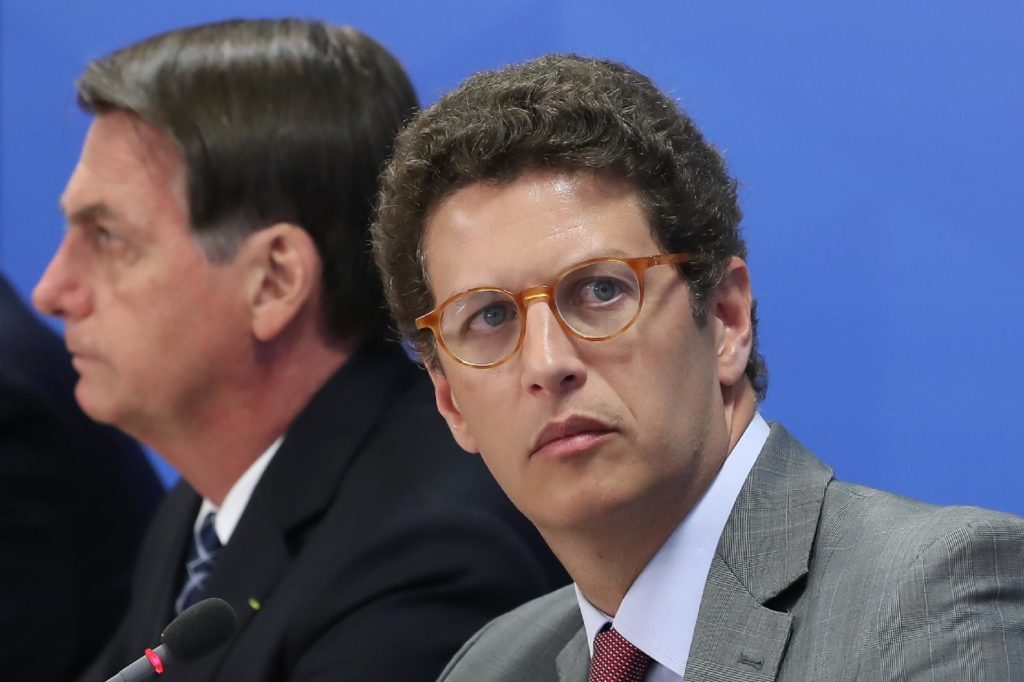RIO DE JANEIRO, BRAZIL – On Tuesday evening, September 29th, a Rio de Janeiro Federal Court suspended the 135th meeting of the National Environmental Council (CONAMA), which had revoked several regulations governing the protection of mangroves and sandbanks.
The preliminary injunction (provisional decision) of the 23rd Federal Criminal Court granted a petition made in a class action filed against the measures taken by CONAMA, chaired by the Minister of the Environment Ricardo Salles.
The Solicitor General’s Office stated that it will take the legal measures as soon as it is officially notified.

The revocations were announced on Monday, September 28th. Two of them limited deforestation and occupation of protected areas of native vegetation, in places such as sand dunes and mangroves. The rules have been in force since March 2002.
CONAMA also authorized the burning of toxic waste in furnaces used for cement production and overturned another resolution that determined water and energy consumption efficiency criteria for irrigation projects to be approved.
According to the plaintiffs, “the repeal of such rules violates the constitutional right to an ecologically balanced environment.”
Federal Judge Carvalho considered that the revoked resolutions establish protection parameters for APPS (Permanent Protection Areas) such as sand dunes, mangroves, and other sensitive ecosystems, in order to prevent occupation and deforestation.
“Given the clear risk of irrecoverable damage to the environment, I hereby grant the temporary restraining order to suspend the revocation considered at the 135th Ordinary Meeting of CONAMA,” wrote the judge.
In May 2019, the government reduced the number of civil society organizations represented in CONAMA. The council, which had 96 advisors, including members from both governmental and nongovernmental entities, now has only 23 full members.
CONAMA is the Ministry of the Environment’s main advisory body and is responsible for establishing criteria for environmental licensing and regulations for controlling and maintaining environmental quality.
The Federal Prosecutor’s Office attended the meeting but had no voting power. Prosecutor Fátima Borghi pointed out that the changes in legislation were made in the absence of the required public hearings and that CONAMA had no legal jurisdiction to overturn the existing resolutions.
Toxic waste and irrigation
Regarding the burning of toxic waste, the argument used at the meeting to advocate the revocation of the resolution was that burning these substances will decrease the amount of solid waste.
Rules defined in 1999 banned the burning of toxic waste in furnaces used for cement production. The World Health Organization recommends that the burning of toxic waste be performed in controlled environments, as they can be harmful to the health of the population.
As for the rules on irrigation, the National Confederation of Agriculture (CNA) argued at Monday’s meeting that it is not “an establishment or activity, but rather a technology used by agriculture to supply water to plants in sufficient quantity and at the right time.”
Repercussion
Greenpeace reported in a statement that the CONAMA decisions are a consequence of the changes in the council promoted by Minister Ricardo Salles that have restricted the participation of civil society and increased government power.
“While the fires are devastating our biomes and damaging our biodiversity, the health and sustenance of the population, Minister Ricardo Salles, again shows that by being the enemy of social participation, the government is an enemy of the community and that it governs for the sectors that benefit most in the short term from the deregulation of environmental protection, such as agribusiness, real estate, and industry, through revocations that promote a reduction in the limits of protection of sand dunes and mangroves, relaxation of the regulation for irrigation and the opening of loopholes for the burning of pesticide residues,” says Greenpeace in the note.
The National Association of Environmental Specialist Servants (ASCEMA) reported in a note that it will “press” the Judiciary and Congress to overthrow CONAMA’s Monday decisions, which the organization describes as “absurd”.
Source: G1

